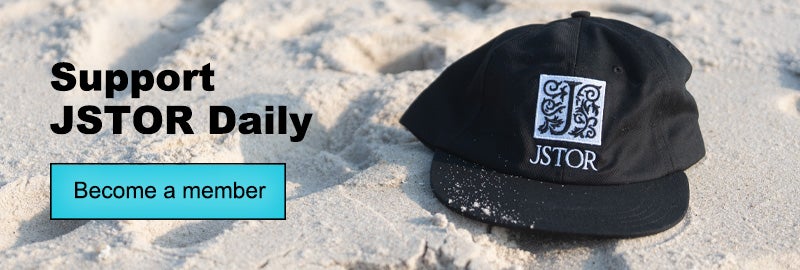Extra Credit: Our pick of stories from around the web that bridge the gap between news and scholarship. Brought to you each Tuesday from the editors of JSTOR Daily.
Measuring the “threat” from Muslim-Americans (Vox)
by Zack Beauchamp
How much safer does a ban targeted at Muslims make America? A new study finds that Muslim-Americans committed a third of a percent of all murders in the US in 2016. Of 3.3 million Muslims living in the country, 24 were implicated in a concrete terrorist plot.
Life in the time of Fitbit (Public Books)
by Natasha Dow Schüll
More and more of us are tracking our steps, our sleep patterns, and our habits—good and bad. How can we make sense of the implications of self-monitoring for our relationships with powerful institutions, our social lives, and even our own sense of identity?
Listening to kratom (New York Magazine)
by Alexa Tsoulis-Reay
Last summer, the DEA abruptly banned the plant extract kratom as a dangerous drug, and then reversed itself after a public outcry. Now, researchers are turning to users of the substance—many of whom tout it as a tool for overcoming opioid addiction—to find out more about what it does.
What $1 trillion in infrastructure could look like (Wired)
Donald Trump and Senate Democrats agree that spending a big chunk of money on improving infrastructure sounds like a good idea. Transportation policy researchers, economists, and engineers have some ideas about how to do that in ways that actually make sense.
When forgiveness is immoral (The Conversation)
by Yerachmiel Gorelik
As we remembered the victims of the Holocaust last week, a rabbi and scholar of Judaism explored the question of what it means to forgive—and when it’s impossible to.
Have you seen a story online that does a good job of bridging the gap between the news and scholarship? Or something that seems particularly well-researched? Let us know and we may include it in next week’s roundup. Email us at jstordaily_submissions (at) jstor (dot) org.






